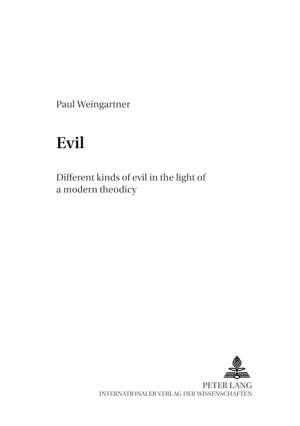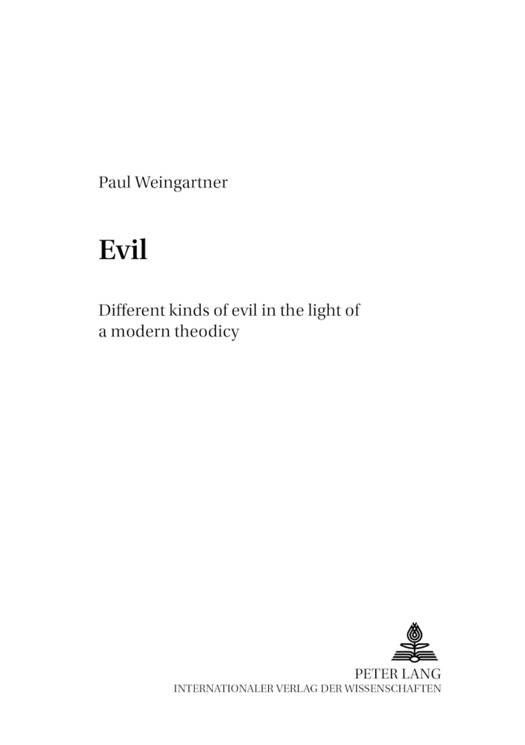
Bedankt voor het vertrouwen het afgelopen jaar! Om jou te bedanken bieden we GRATIS verzending (in België) aan op alles gedurende de hele maand januari.
- Afhalen na 1 uur in een winkel met voorraad
- In januari gratis thuislevering in België
- Ruim aanbod met 7 miljoen producten
Bedankt voor het vertrouwen het afgelopen jaar! Om jou te bedanken bieden we GRATIS verzending (in België) aan op alles gedurende de hele maand januari.
- Afhalen na 1 uur in een winkel met voorraad
- In januari gratis thuislevering in België
- Ruim aanbod met 7 miljoen producten
Zoeken
€ 119,95
+ 239 punten
Omschrijving
This book is a logical and philosophical analysis of the problem of evil in the light of a modern theodicy. Definitions are given for several kinds of evil like basic evil, necessary evil, legitimate evil, illegitimate evil, moral evil. Many evils are contingent and avoidable since a global determinism is untenable. A special explanation is given for the fact: How evil accompanies the good. Can evil be desired at all? Omnipotence is acceptable, allwillingness is refutable.
To the main question of theodicy three explanations are offered and it is shown that the attacks against theism with the help of the existence of evil, like Hume's and other arguments are either logical fallacies or use false or very problematic premises.
The appendix shows that there are consistent theories with the theses: God is omniscient and omnipotent, whatever God wills is good, there are different evils including moral evil.
To the main question of theodicy three explanations are offered and it is shown that the attacks against theism with the help of the existence of evil, like Hume's and other arguments are either logical fallacies or use false or very problematic premises.
The appendix shows that there are consistent theories with the theses: God is omniscient and omnipotent, whatever God wills is good, there are different evils including moral evil.
Specificaties
Betrokkenen
- Auteur(s):
- Uitgeverij:
Inhoud
- Aantal bladzijden:
- 160
- Taal:
- Engels
- Reeks:
- Reeksnummer:
- nr. 1
Eigenschappen
- Productcode (EAN):
- 9783631507247
- Verschijningsdatum:
- 4/09/2003
- Uitvoering:
- Paperback
- Formaat:
- Trade paperback (VS)
- Afmetingen:
- 148 mm x 210 mm
- Gewicht:
- 199 g

Alleen bij Standaard Boekhandel
+ 239 punten op je klantenkaart van Standaard Boekhandel
Beoordelingen
We publiceren alleen reviews die voldoen aan de voorwaarden voor reviews. Bekijk onze voorwaarden voor reviews.









